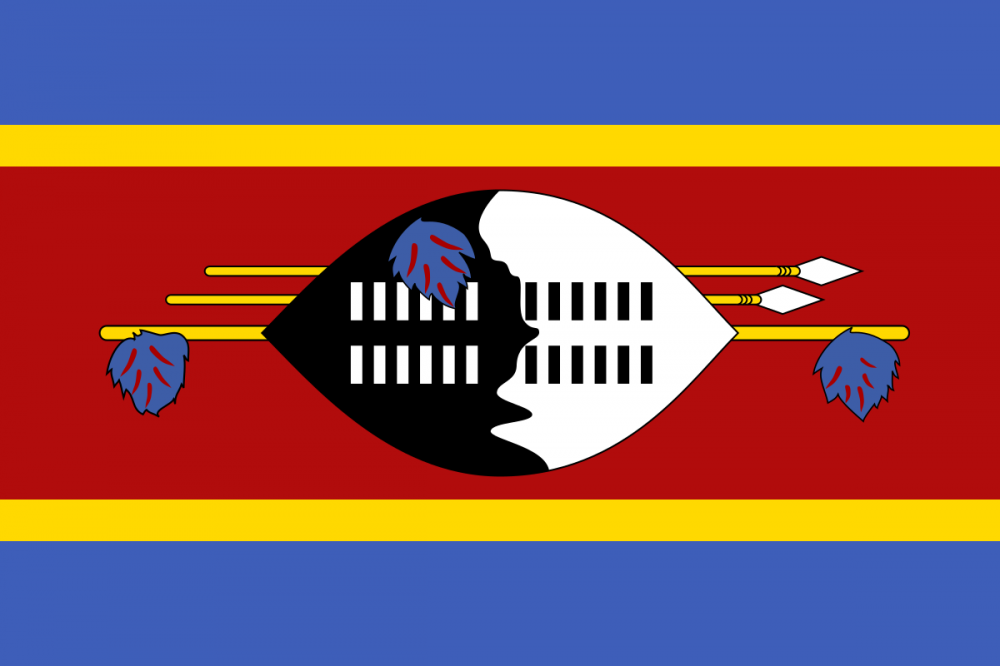 |
| © UNICEF Swaziland/2007/Skorochod |
| Bongiwe, pictured left and two peers in the theatre club, hold their trophy for second position in a recent regional drama competition |
Langeni, December 2007 — Well spoken with a broad smile, Bongiwe is a natural actress. Even when her stage is a big dusty field at the side of the road, she shines. Her gestures are big and bold, and the 20 or so community grandparents nestled under the trees follow her every move.
At 17, Bongiwe is the second oldest member of the eLangeni Youth Drama Group. The other 15 members range in age from seven to 18 years. The day’s performance was one of their best, portraying how physical abuse of children impacts families and communities.
“I feel fortunate to be in the club,” says Bongiwe. “School is almost finished and there isn’t much hope for a job here. But I could be doing nothing. Instead I’m having fun and helping my community.”
An expert at creating other worlds for her audiences, Bongiwe has no illusions for herself about finding work. She knows that her chances of gaining employment, even with a high school diploma, are slim. Nearly 40% unemployment and 69% of the population living below the poverty line makes young people like Bongiwe vulnerable – to HIV infection, unwanted pregnancy, and a host of other ills that plague the rural poor, especially women, in Swaziland.
But drama clubs like those in eLangeni keep youth busy, out of trouble, and help teach them something along the way.
Recognizing the potential of drama, UNICEF teamed up with Swaziland Theatre for Children and Young People (SWATCYP) in 2006 to promote theatre as a tool to educate and entertain children and youth. A nationwide drama festival followed and clubs such as the one in eLangeni were formed across Swaziland. A similar programme was held in 2007 to reach out to even more children.
The drama clubs don’t shy away from the tough issues. ELangeni Drama Club performances address child abuse, HIV, drug addiction and child trafficking – issues that Swazi children face each day.
“More than 12,000 children have been reached through theatre programmes,” says SWATCYP Secretary General Maswati Dludlu. “These children teach one another and teach the communities at the same time. The children bring their own ideas and experiences to the performance so it makes the messages they send more meaningful.”
eLangeni Drama Club performs within its own community and, when the club can raise the funds for bus fare, also performs in other parts of the country. Despite being together for only one year, the Club has proved itself, earning second position in a regional drama competition in mid 2007.
“I know we’re making a difference in our community,” says Bongiwe. “We bring up issues that many people just don’t want to talk about. The club is so good for our people, and so good for me. I hope it continues.”
Source:
- https://www.unicef.org/swaziland/media_9269.html

